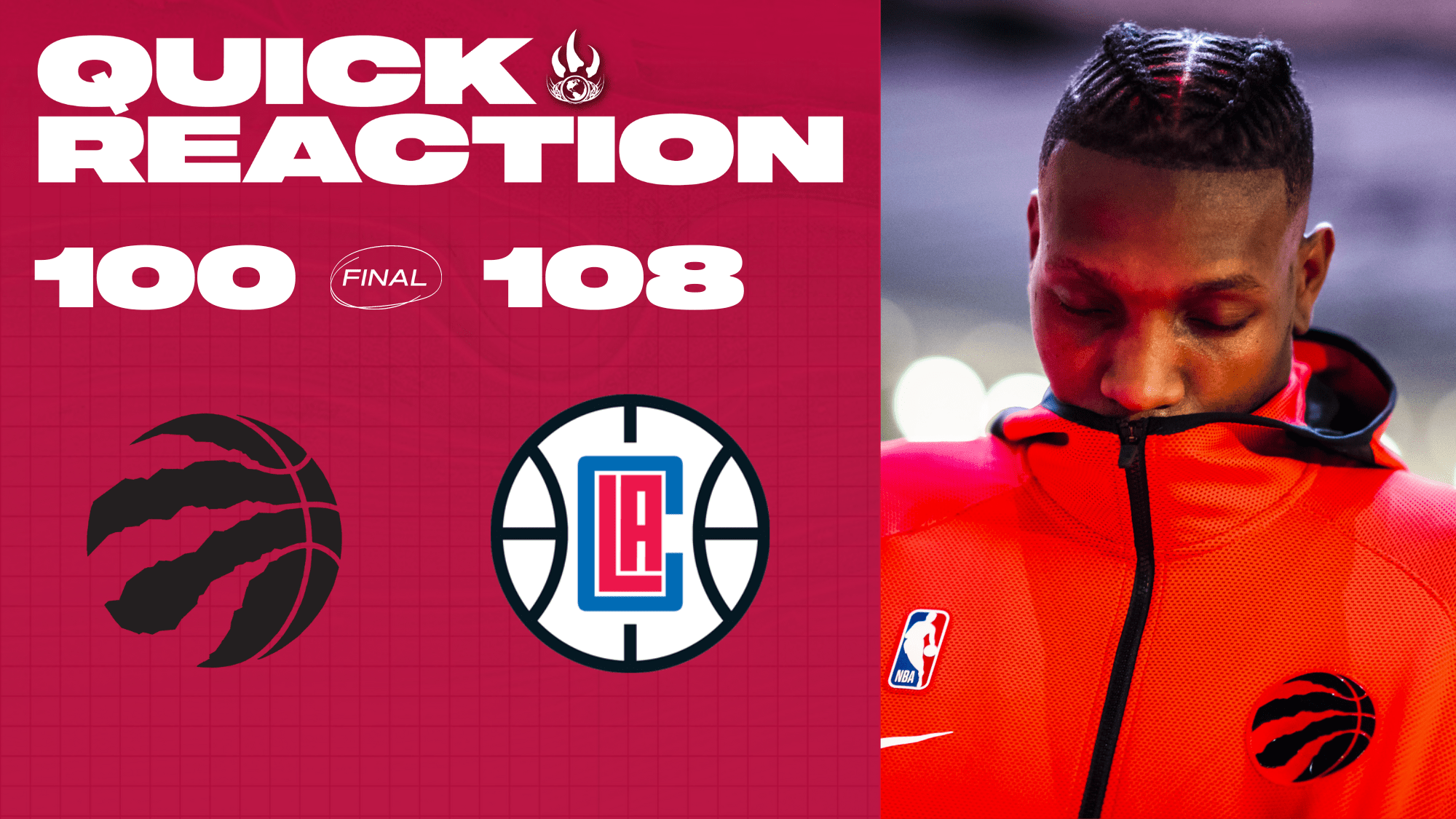Midway through the first quarter on Feb. 28 against the Chicago Bulls, Gary Trent jr. entered the game. He had started for most of his career to that point as a Toronto Raptor — 123 of 140 games. But with Jakob Poeltl in town and winning his minutes by the second-largest margin in the league, behind only Nikola Jokic, something had to give in the starting lineup. That something was Trent, who moved to the bench as Toronto’s big guns returned to health — in a contract year, no less.
He did it with no public complaining, no leaks about dissatisfaction, and no questioning his role. Trent has been a consummate professional in a time when many players would not be.
It took him only two-and-a-half minutes to hit a triple against the Bulls once he entered the game. He had to get his bearings — players are often extraordinarily routine-oriented, down to the last detail, which means when erstwhile starters come off the bench, it can throw off their first few moments in the game until they’re up to speed. He missed a triple 26 seconds after entering the game and then missed a pull-up 2-pointer a minute later. But when he found his range, it flowed with ease. He scored six points in the first quarter, all on triples.
He finished with an excellent 19 points on 13 shots, and he even closed the game for the Raptors in their win over Chicago. His minutes were down against the Washington Wizards the next game (and he lost the minutes he did play by 26 points). Then up again in Game 2 against the Wizards, as he scored 26. Then down again against the Denver Nuggets as he scored only 13, albeit very efficiently.
Players need consistency, and because they play their starters so many minutes, the Raptors really only have consistent minutes for five players at a time. Trent is on the outside looking in for one game then back in the inner circle the next. It’s hard. But he’s been pheromonal in his time on the court when playing off the bench.

The efficiency is perhaps the most important component for Toronto. Trent is a gunner, and that’s not a bad thing; in fact, the Raptors desperately need him firing away at the rim virtually every time he touches the ball. Most importantly, gunners need to hit. Trent’s been doing that. It’s not selfish — it’s required. Toronto doesn’t have enough floor-spacers or shooters or quick-decision players on the roster, so Trent must do the work that most teams have a few different guys on. He’s his own department, and he’s running a tight ship.
Trent has long been a quick decision maker for the Raptors, and his average touch time and average dribbles per touch are down from where they were last season. And he is, as always, right at the top of the league in points per touch. He’s scoring .456 points per touch, which is eighth in the league among players who’ve appeared in at least 30 games. (Last season he was 12th at .432). Trent had this role for a while, and he was growing into it more and more.
Things have changed slightly since the trade deadline. Playing on the bench, Trent has spent a far larger proportion of his time alongside Precious Achiuwa and Chris Boucher. The chaos contingency has huge impact, but they offer little in the way of building a foundational structure on the offensive end. Yet those units survive, surprisingly, by playing elite offense (not so much by making shots, but by almost never committing turnovers and then by crashing the offensive glass.) Trent becomes the lodestone player in such transitional units. He’s the one making shots most often. He’s running the highest rate of pick and rolls this season in March and February (and he’s been at his most successful, too). His cuts around wide pindowns provide the system for bench offense, and his shot-making the punch.
Nurse has experiment with whom to station around that threesome. Will Barton (shooting) and Scottie Barnes (playmaking) have had some minutes, and that group has won its 13 minutes across two games by eight points. But so too have Pascal Siakam and Barnes, Fred VanVleet and Barnes, and even VanVleet and Anunoby had kicks at the can. No matter who else has been alongside the bench trio, Trent has been crucial.
He’s been particularly effective in handoffs, letting him use his legs and his skills to create offense. He’s consistently created advantages, which Toronto has done too rarely on the offensive end this season no matter whether the starters or the bench has been playing.
With Trent on the floor, Toronto’s pace is higher and turnovers are lower. He’s filling a new role now off the bench. He was the fifth starter, spacing the floor for the stars and converting advantages they created. Now he’s often the one creating advantages (and, because Toronto’s offense doesn’t have the range of modern weaponry that offenses in 2023 usually do, he’s also the one converting them). He is holding the ball for slightly longer since the trade deadline, dribbling it more, and averaging fewer points per touch.
And yet, Trent has only increased his efficiency during the change.
Trent has been in the midst of the best season in his career, but much of that came when context was hugely advantageous for Trent. Context has shifted around him, now asking Trent to do more with the ball, to make slower decisions, to create more for his teammates and have his teammates to create less for him. His response has been simply to knock down more of his shots.
It’s worth mentioning that the Raptors have, by and large, lost Trent’s minutes since the trade deadline. His on-court net rating since Feb. 9 is negative-6.8, second-worst among rotation players, ahead of only Thad Young. Poeltl has had the best net rating, followed by Barnes then VanVleet; the starters are doing most of Toronto’s winning. The bench has been asked to tread water.
Though overall the Raptors might be losing Trent’s minutes, he has been fantastic at treading water. He has been successful individually, even if that hasn’t been able to lift the Raptors to team-wide success. Of course, Toronto has lost bench minutes all season long; this issue is absolutely not Trent’s own. Nick Nurse hasn’t yet found the best bench rotation. Perhaps the fivesome with Trent, Barton, Achiuwa, Boucher, and Barnes will be the best option; they’ve won their minutes by the most, and they’ve also played the most minutes with the trio of Trent, Boucher, and Achiuwa. Nurse has time to find the best unit before the playoffs start, if the Raptors get there. (They should.)
Perhaps most significantly, when Trent has had a chance to play alongside Poeltl, the Raptors have actually lost their minutes with a net rating of negative-5.7 in 117 minutes. That’s a very small sample size, too small to draw solid conclusions, but it gestures towards the possibility that Trent is best used as a bench pillar rather than a starting supporter. Perhaps treading water for much of the game, and supporting the stars for short stretches, is the best usage of Trent’s abilities. That’s something else the Raptors are in the process of learning.
But as the team gathers information, scouts ahead, and learns the best route to empowering the bench, Trent has simply gone out there and balled. His efficiency is rebounding after a slow start from deep this season. He’s running more actions and running them better. The team is asking him to fulfill a new role, in a new situation, and he’s performed as consistently and as well as he performed in his old one. Everything is changing around Trent. Yet Trent has remained as solid as a rock.



